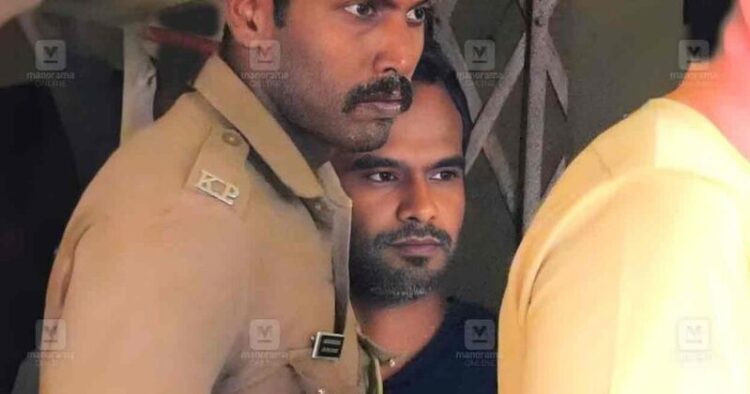The National Investigation Agency (NIA) Court has handed down a 10-year rigorous imprisonment sentence to Riyas Abubacker, who has been linked to the Islamic State (IS). Alongside the imprisonment, Abubacker has also been ordered to pay a penalty of Rs 1,25,000.
Despite being initially sentenced to 25 years of rigorous imprisonment, the court has commuted the term to 10 years under various clauses. Additionally, Abubacker will benefit from the deduction of the four years he has already served, reducing his overall sentence duration.
Abubacker was arrested by the NIA in 2018 and found guilty of plotting a series of bomb blasts in the state. The prosecution argued for maximum punishment, highlighting the seriousness of his actions.
The investigation revealed that Abubacker was in contact with individuals who joined ISIS in Afghanistan and had sinister intentions to carry out suicide attacks under the directives of Abdul Rashid Abdullah, an IS leader in Afghanistan. Two of the initially accused individuals later became approvers in the case, providing crucial evidence against Abubacker. They were Mohammed Faizal and Abubacker Siddique.
This case sheds light on the efforts of the NIA in combating terrorism in Kerala. The recent arrest of Savad, the main accused in the Prof. T.J. Joseph’s hand-chopping case, further underscores the importance of agencies like the NIA in apprehending terrorists. However, the political landscape in Kerala, dominated by vote-bank politics, poses challenges in addressing extremism effectively. Both the ruling CPM-led Left Democratic Front (LDF) and the opposition Congress-led United Democratic Front (UDF) are criticised for their reluctance to confront extremist outfits.
Instances such as the selection of Wael Al-Dahdouh, the Gaza Bureau Chief of Al Jazeera TV, as the “Media Person of The Year” by the Kerala Media Academy, and the support extended to individuals like Siddique Kappan by leftist parties and media, highlight the complex political dynamics at play. The reluctance of political leaders to unequivocally condemn Hamas, even in the face of conflict with Israel, underscores the influence of vote-bank considerations.
Moreover, incidents like the inclusion of ‘Ode To The Sea’, authored by Al-Qaeda terrorist Ibrahim al-Rubaish, in the Calicut University syllabus reflect the need for vigilance against extremist ideologies infiltrating educational institutions. These developments expose the underlying vote-bank politics prevalent in Kerala, which often prioritise political gains over addressing the threat of extremism effectively.




















Comments